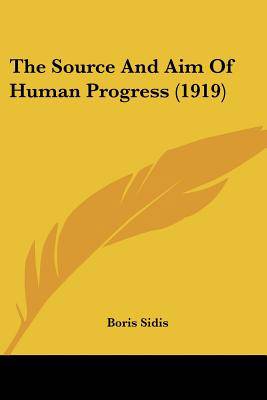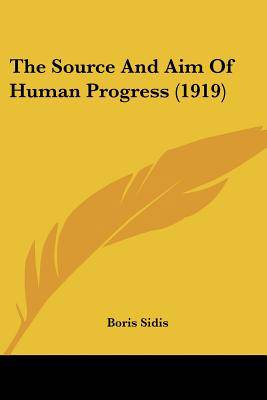
- Afhalen na 1 uur in een winkel met voorraad
- Gratis thuislevering in België vanaf € 30
- Ruim aanbod met 7 miljoen producten
- Afhalen na 1 uur in een winkel met voorraad
- Gratis thuislevering in België vanaf € 30
- Ruim aanbod met 7 miljoen producten
Zoeken
€ 27,45
+ 54 punten
Uitvoering
Omschrijving
The Source And Aim Of Human Progress is a book written by Boris Sidis in 1919. The book explores the concept of human progress and its origins. Sidis argues that human progress is driven by the innate desire for freedom and the pursuit of knowledge. He believes that progress is achieved through the development of individuality, creativity, and the expansion of consciousness. In the book, Sidis examines the history of human progress, from ancient civilizations to the modern era. He discusses the role of science, philosophy, and art in driving progress and argues that progress is not linear but rather cyclical, with periods of growth and decline. Sidis also explores the role of education in fostering progress, arguing that traditional education systems often stifle individuality and creativity. He advocates for a more holistic approach to education that encourages free thinking and creativity. Overall, The Source And Aim Of Human Progress is a thought-provoking book that challenges readers to rethink their understanding of progress and the forces that drive it. Sidis' ideas remain relevant today and continue to inspire new ways of thinking about human progress.This scarce antiquarian book is a facsimile reprint of the old original and may contain some imperfections such as library marks and notations. Because we believe this work is culturally important, we have made it available as part of our commitment for protecting, preserving, and promoting the world's literature in affordable, high quality, modern editions, that are true to their original work.
Specificaties
Betrokkenen
- Auteur(s):
- Uitgeverij:
Inhoud
- Aantal bladzijden:
- 66
- Taal:
- Engels
Eigenschappen
- Productcode (EAN):
- 9781120929617
- Verschijningsdatum:
- 29/01/2010
- Uitvoering:
- Paperback
- Formaat:
- Trade paperback (VS)
- Afmetingen:
- 152 mm x 229 mm
- Gewicht:
- 99 g

Alleen bij Standaard Boekhandel
+ 54 punten op je klantenkaart van Standaard Boekhandel
Beoordelingen
We publiceren alleen reviews die voldoen aan de voorwaarden voor reviews. Bekijk onze voorwaarden voor reviews.











